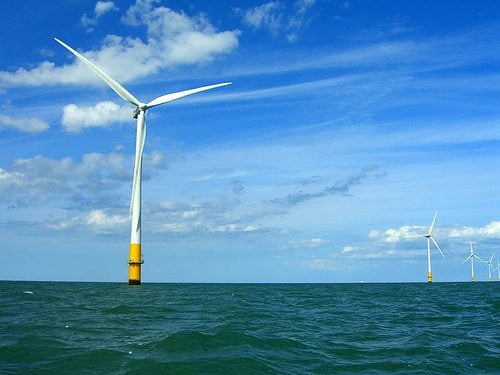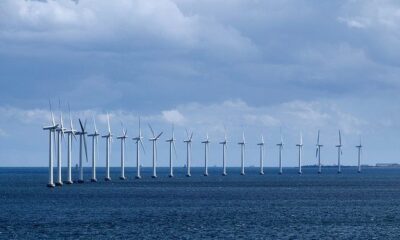

Energy
UK’s loss of top 10 status shows Government policy misguided on renewables
RenewableUK, the trade association representing the wind wave and tidal energy industries, is highlighting the publication of EY’s latest quarterly Renewable Energy Country Attractiveness Index report, which shows that the UK has dropped out of the top ten for the first time since the Index began 12 years ago.
EY say that a wave of policy announcements reducing or removing various forms of support for renewable energy projects has left investors and consumers baffled and that lack of clarity and direction around UK energy policy may undermine investment in other areas, also threatening new nuclear build, CCS and shale gas.
EY notes that a plethora of Government announcements, including an early end to the Renewables Obligation for onshore wind, and pan-renewables changes to the Climate Change Levy, has seen the attractiveness UK’s renewables market plummet. It warns that investors are now turning towards the US, India, Brazil and Chile instead. However, confidence in the UK’s position as the number one market for offshore wind, and number two market for wave and tidal energy, offer some comfort.
1616 said: “This report shows that investor confidence is being hit. For the first time the UK has fallen out of the top 10 of investor attractiveness. Investors are saying that Government has not set out a clear energy policy and don’t see the UK delivering decarbonisation at lowest cost, based on actions taken so far.
“The biggest worry for investors is that of an investment hiatus. Industry is ahead of Government in the need to protect the consumer while keeping the lights on and tackling climate change. Onshore wind is already the lowest-cost low carbon option and offshore wind is ahead of target in its cost reduction efforts. But without long term clarity, projects will be delayed, investment will go elsewhere and consumer savings will be lost.
“Confidence in offshore wind and wave & tidal markets remains high though, and we hope to see Government backing these ambitious world-leading parts of the energy market.”


 Features9 months ago
Features9 months agoWhat is the Eco-Friendliest Option to Wash Your Dishes?

 Environment12 months ago
Environment12 months agoBuilding a Career in Green Construction: Tips and Insights

 News11 months ago
News11 months ago5 Ways Fleet Maintenance Software Can Help Businesses Be More Eco-Friendly

 Features10 months ago
Features10 months agoAddressing Pressing Ethical Concerns with Crypto Exchanges





























